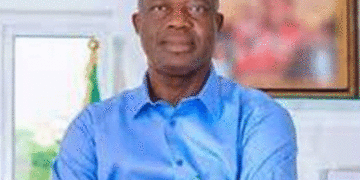Medical Women Association of Nigeria (MWAN) has decried the rise in harmful traditional practices and gender-based violence against women in parts of Rivers State, especially in Abua/Odual local government area of the state.
It declared that such harmful practices were crippling the progress of women in the council.
MWAN national president, Prof. Roseline Ogu, disclosed this at an event in Port Harcourt, the state capital.
Ogu warned that unless such harmful practices were stopped, women would continue to suffer setbacks in health education and development.
“What we are saying is not for you to cherish. What is happening here today is research carried out by the Medical Women Association of Nigeria in Abua/Odual local government area, in comparison with what is happening in Ikwerre and Obio/Akpor local government areas, to see the consequences of gender based violence in terms of mental health.
“You know that there is a cause to all of these, and these causes diminish the output people can give. So, you find someone who is undergoing gender based violence and forced, harmful traditional practices, who is not able to reach their full potential as a human being. That is a human rights violation; a gross human rights violation,” she said.
Also speaking at the event, Professor Omosuyi Maduka, the lead of MWAN’s monitoring and evaluation team, called on the government, traditional rulers, and civil society organisations to join forces in fighting the menace.
Maduka described some harmful traditional practices still observed in Rivers State as disturbing and unacceptable.
“Harmful practices like harmful widowhood, where women are made not to take their bath, not to change cloths, drinking dead body’s water, and so many horrible things are still going on as I am talking to you now.
“Everybody who is interested in gender based violence prevention and response should come together. We need to come together, to work together, to come up with strategies. Let us go to these communities and have a dialogue with the people who are perpetrating these acts. Let us see their challenges and why these acts are still going on, and see how we can turn things around,” she said.
For his part, the traditional ruler of the Eminikpoko community in Abua/Odual LGA, Clinton Abala, pledged his readiness to work with stakeholders to stamp out these practices once and for all.





